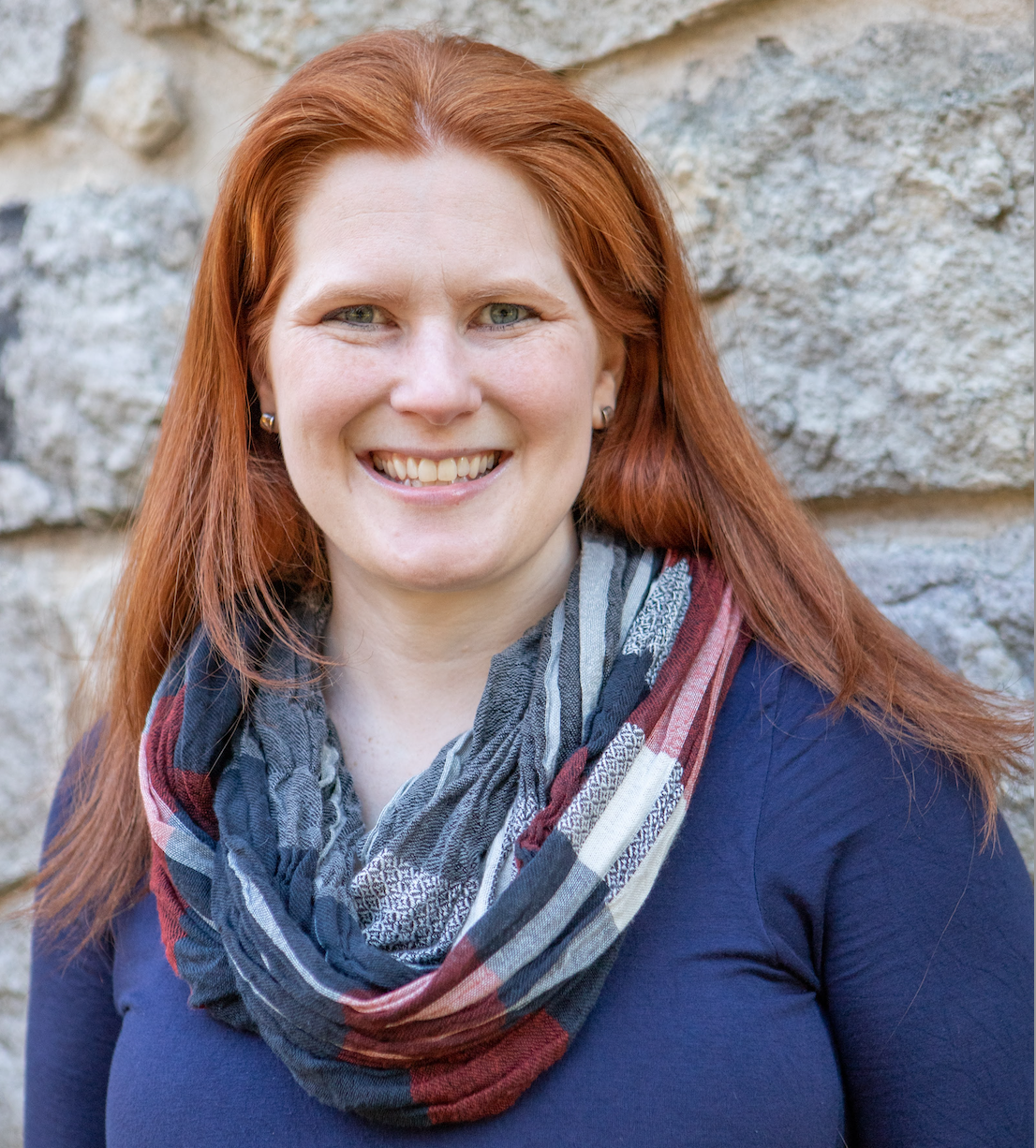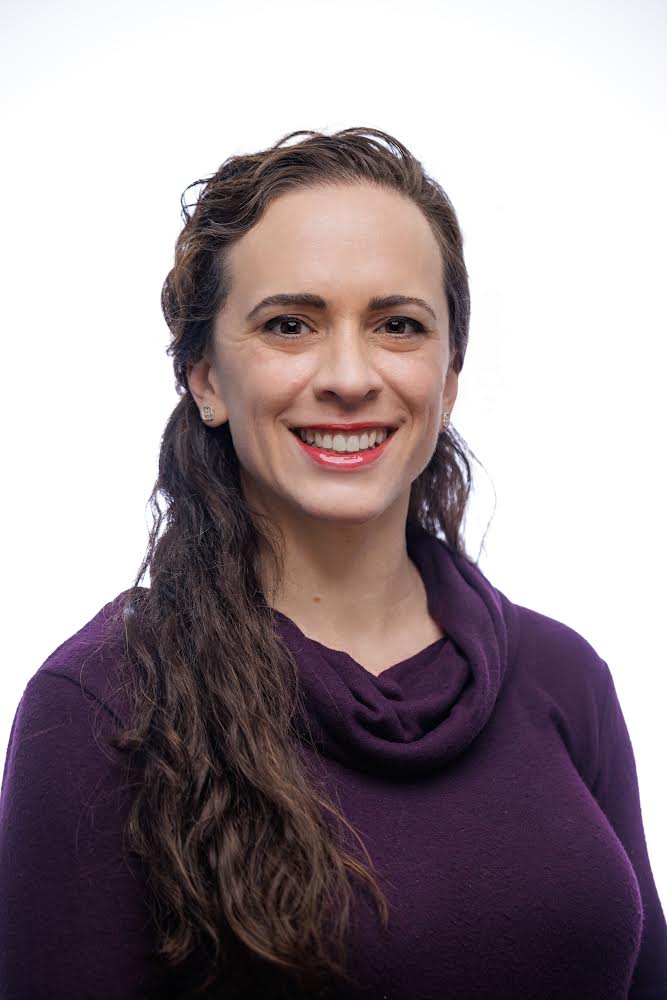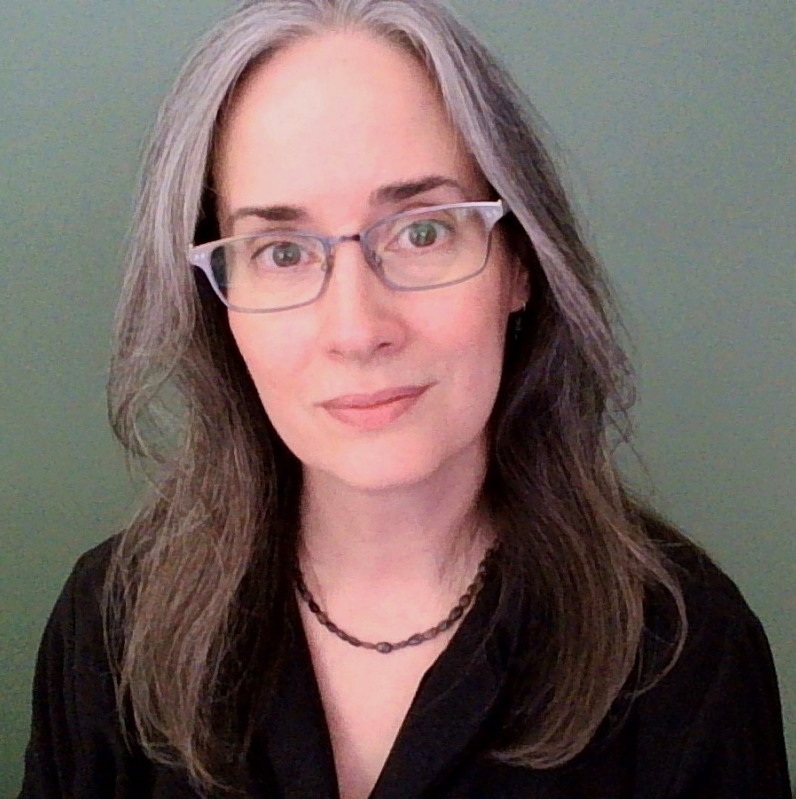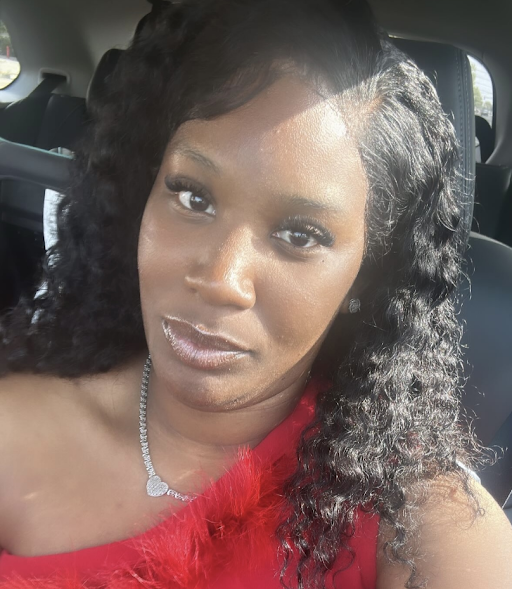April 2024
Neurodiversity Webinar Series
Beyond the Spectrum: An Introduction to Neurodiversity in the Interpreting Profession
Presenters: Amanda Kennon, NIC & Laura Polhemus, NIC Advanced
Where: Zoom
How to Register for the Neurodiversity Series
There are a total of five sessions in this webinar series. Individuals have the option to attend each webinar individually, or purchase packages.
- Purchase the package that best applies to you. The packages automatically include sessions one and five, and then one of the three sessions in the middle best suited for the participant. Please see below for the examples of our packages:
- Neurodivergent Interpreters – Sessions 1, 2 and 5
- Students Only – Sessions 1, 3, and 5
- Anyone – Sessions 1, 4, and 5
- Those interested in taking all five should email webinars@rid.org.
Earn CEUs – Individual Webinars:
- Session 1. Beyond the Spectrum: Exploration
- Session 2. Application for Neurodivergent Interpreters: April 9, 2024, 7-9pm ET
- Session 3. Application for Students: April 16, 2024, 7-9pm ET
- Session 4. Application for General Audience: April 23, 2024, 7-9pm ET
- Session 5 – Beyond the Spectrum: Community of Voices
Earn CEUs – Package Options:
- Package of 3 – Neurodivergent interpreters only (Webinar 1, 2 & 5)
- Package of 3 – Students only (Webinar 1, 3 & 5)
- Package of 3 – Anyone (Webinar 1, 4 & 5)
No CEUs – Individual Webinars:
- Session 1. Beyond the Spectrum: Exploration
- Session 2. Application for Neurodivergent Interpreters: April 9, 2024, 7-9pm ET
- Session 3. Application for Students: April 16, 2024, 7-9pm ET
- Session 4. Application for General Audience: April 23, 2024, 7-9pm ET
- Session 5 – Beyond the Spectrum: Community of Voices
No CEUs – Package Options:
Participants will encounter privilege, identity, intersectionality, stigma, and ableism through a neurodivergent lens. This knowledge will encourage participants to assess and remove barriers throughout the interpreting profession. After the presenters provide an introduction to the neurodivergent community, conditions, and commonly used terminology, participants will have an opportunity to apply the Demand-Control Schema and analyze the unique challenges that neurodivergent interpreters experience. These activities will prompt participants to internalize the power of “and” regarding what neurodivergent interpreters bring to the profession – individually and collectively.
Language: Conducted in ASL with English interpretation
Educational Objectives:
After this workshop, participants will be able to:
- Explain the differences between neurodiversity, neurodivergent, and neurotypical.
- List at least three examples of neurodivergent conditions.
- Define key terminology including spoon theory, ableism, gatekeeping, and gaslighting.
- Apply the Demand-Control Schema to analyze the unique demands and controls that neurodivergent interpreters experience.
Assessment of Learning:
- Participants will write their own definitions of the terms taught during the workshop.
- Participants will discuss neurodiversity and the Demand-Control Schema in small and large groups.
- Participants will complete a Likert scale evaluation at the end of the session.
Prior Knowledge: Little to none
Beyond the Spectrum: Application for Neurodivergent Interpreters is a Community of Practice for neurodivergent interpreters to assess the stigmas and challenges of being a neurodivergent individual and interpreter. Using the RID Code of Professional Conduct and Demand-Control Schema as a framework, participants will have the opportunity to share stories, strategies, and resources while evaluating the implications and impact of spoon theory, imposter syndrome, executive functioning, time blindness, task paralysis, sensory differences, body doubling, Rejection Sensitive Dysphoria (RSD), and more.
>>Register for Session 2 and Earn CEUs
>>Register for Session 2 and not Earn CEUs
>>Package for Neurodivergent Interpreters: Register Here to Earn CEUs! (Webinar 1, 2 & 5)
>>Package for Neurodivergent Interpreters: Register Here for no CEUs! (Webinar 1, 2 & 5)
Language: ASL with no English interpretation
Educational Objectives
After this workshop, participants will be able to:
- Assess the stigmas and challenges of being a neurodivergent individual and interpreter.
- Evaluate the implications and impact of spoon theory, imposter syndrome, executive functioning, time blindness, task paralysis, sensory differences, body doubling, Rejection Sensitive Dysphoria (RSD), and more on neurodivergent interpreters using Demand-Control Schema as a framework.
Assessment of Learning
- Participants will engage in small and large group discussions.
- Participants will create a shared document on ways to make the field accessible to neurodivergent interpreters.
- Participants will complete a Likert scale evaluation at the end of the session.
Prior Knowledge: Some
Beyond the Spectrum: Application for Students is a Community of Practice for neurodivergent interpreting students to evaluate the challenges and successes they are experiencing in their Interpreting Training Programs. Participants will have the opportunity to describe what accommodations have worked for them, what they wish were offered, and how ITPs can foster inclusion and belonging. Participants will engage in breakout groups to facilitate growth and understanding.
>>Register for Session 3 and Earn CEUs
>>Register for Session 3 and not Earn CEUs
>>Package for Students: Register Here for Earn CEUs! (Webinar 1, 3 & 5)
>>Package for Students: Register Here for no CEUs! (Webinar 1, 3 & 5)
Language: Conducted in English with ASL interpretation
Educational Objectives
After this workshop, participants will be able to:
- Reflect on the stigmas and challenges neurodivergent students experience during their education.
- Celebrate successes neurodivergent students are experiencing in their Interpreter Training Programs.
- Analyze offered academic accommodations and reflect on their effectiveness.
- Propose tools educators and non-neurodivergent peers can use to support neurodivergent students.
- Question current atmospheres of inclusion and belonging and identify potential areas of improvement.
Assessment of Learning
- Participants will engage in small and large group discussions.
- Participants will create a shared document on ways to support neurodivergent interpreting students.
- Participants will complete a Likert scale evaluation at the end of the session.
Prior Knowledge: Some
Beyond the Spectrum: Application is Community of Practice open to all students, interpreters, educators, and consumers to examine how we, as individuals and a profession, can support neurodivergent interpreting students, colleagues, and consumers while balancing accessibility and inclusion. Additionally, participants will reflect on the stigma that neurodivergent interpreters and consumers experience and propose how we can dismantle ableist thoughts and behaviors from a variety of perspectives.
>>Register for Session 4 and Earn CEUs
>>Register for Session 4 and not Earn CEUs
>>Package for Anyone: Register Here to Earn CEUs! (Webinar 1, 4 & 5)
>>Package for Anyone: Register Here for no CEUs! (Webinar 1, 4 & 5)
Language: ASL with no English interpretation
Educational Objectives
After this workshop, participants will be able to:
- Examine how we, as individuals and a profession, can support neurodivergent interpreting students, colleagues, and consumers while balancing accessibility and inclusion.
- Reflect on the stigma that neurodivergent interpreters and consumers experience.
- Propose how we can dismantle ableist thoughts and behaviors from a variety of perspectives.
Assessment of Learning
- Participants will engage in small and large group discussions.
- Participants will create a shared document on ways to make the field accessible to neurodivergent interpreters.
- Participants will complete a Likert scale evaluation at the end of the session.
Prior Knowledge: Some
Finally, the workshop series will conclude the Beyond the Spectrum: Community Voices with Deaf neurodivergent individuals sharing their experiences and perspectives as consumers, interpreters, and educators through a facilitated discussion.
>>Register for Session 5 to Earn CEUs!
>>Register Here Session 5 and not Earn CEUs!
Language: ASL with no English interpretation
Educational Objectives
After this workshop, participants will be able to:
- Describe the intersectionality of identities, including deafness and neurodivergence.
- Propose how interpreters can mitigate the stigma experienced by neurodivergent consumers.
Assessment of Learning
- Participants will complete a Likert scale evaluation at the end of the session.
Prior Knowledge: None
Met the Neurodiversity Series Presenters!

 Laura Maddux Polhemus (she/her), PhD, NIC Advanced, BEI Advanced, has been involved with the Deaf community for more than 23 years as an ASL student, interpreter, interpreter educator, and friend. Laura gained her BBA in Business Administration from Sam Houston State University before adding an AAS in Interpreter Training from Tyler Junior College. She studied Applied Linguistics at Texas Tech for her MA, and her thesis focused on having ASL students and Deaf students of English help each other with their language learning from a distance. Laura received her PhD in interpretation from Gallaudet University in 2015, during Her dissertation resulted in a publication, “Source Attribution in ASL-English Interpreter Education: Testing a Method”, with the International Journal of Interpreter Education. While obtaining her PhD she was diagnosed with ADHD, and has been on a journey to discover what that means in her life and work ever since. She has also investigated self-talk in interpreters, and published “The Committee in My Head: Examining Self-Talk of American Sign Language-English Interpreters” in Translation and Interpretation Studies. She has also done research on how novices and experts experience self-talk and how to improve interpreting students’ self-efficacy. Laura was heavily involved in planning and running the 2015 and 2019 World Association of Sign Language Interpreters Conferences. She has presented for CIT, RID, Critical Link, TSID, and more. She is currently an Assistant Professor at Bethel University in Mishawaka, IN where she searches out methods to teach her increasing number of neurodivergent students.
Laura Maddux Polhemus (she/her), PhD, NIC Advanced, BEI Advanced, has been involved with the Deaf community for more than 23 years as an ASL student, interpreter, interpreter educator, and friend. Laura gained her BBA in Business Administration from Sam Houston State University before adding an AAS in Interpreter Training from Tyler Junior College. She studied Applied Linguistics at Texas Tech for her MA, and her thesis focused on having ASL students and Deaf students of English help each other with their language learning from a distance. Laura received her PhD in interpretation from Gallaudet University in 2015, during Her dissertation resulted in a publication, “Source Attribution in ASL-English Interpreter Education: Testing a Method”, with the International Journal of Interpreter Education. While obtaining her PhD she was diagnosed with ADHD, and has been on a journey to discover what that means in her life and work ever since. She has also investigated self-talk in interpreters, and published “The Committee in My Head: Examining Self-Talk of American Sign Language-English Interpreters” in Translation and Interpretation Studies. She has also done research on how novices and experts experience self-talk and how to improve interpreting students’ self-efficacy. Laura was heavily involved in planning and running the 2015 and 2019 World Association of Sign Language Interpreters Conferences. She has presented for CIT, RID, Critical Link, TSID, and more. She is currently an Assistant Professor at Bethel University in Mishawaka, IN where she searches out methods to teach her increasing number of neurodivergent students.
Accessibility Notice: As a reasonable accommodation, the Exploration session will be conducted in ASL with English interpretation and the Application for Students will be conducted in English with ASL interpretation. All other sessions will be conducted in ASL with no English interpretation.
Deaf History Month
The Power of Deaf Interpreters Through History
Presenter: Anne Leahy, PhD, CI and CT, NAD V
When and Where: Monday, April 8, 2024 1-4pm EST, Zoom
Language: ASL with no English interpretation
Anne Leahy, PhD, CI and CT, NAD V
 Anne Leahy, has been a private practice ASL–English interpreter/translator, mentor, and speaker since 1989. Her historical research seeks to understand contemporary issues in the field by tracing the legal and social pedigrees of the signed language interpreting role in both the US and UK. She holds a PhD in Translation Studies from the University of Birmingham (UK), and for several years has taken BSL lessons through a professional tutor.
Anne Leahy, has been a private practice ASL–English interpreter/translator, mentor, and speaker since 1989. Her historical research seeks to understand contemporary issues in the field by tracing the legal and social pedigrees of the signed language interpreting role in both the US and UK. She holds a PhD in Translation Studies from the University of Birmingham (UK), and for several years has taken BSL lessons through a professional tutor.
This webinar seeks to break old assumptions and beliefs about the roots of deaf interpreters. Did you know that…
- Deaf interpreters are not a recent development. Their work has evolved over centuries, and this workshop demonstrates how the DI role emerged with separate historical foundations from their hearing counterparts. Understanding our origins from different and complementary centers is critical to unpacking stereotypes, challenging assumptions, and moving forward as a profession.
- Deaf interpreters do have historical evidence. This workshop reveals inspiring accounts about centuries of DIs from documented court cases. Participants will recognize themselves as they explore centuries-ago creative interpreting strategies under pressure in working with deaf witnesses, victims, and defendants – both with and without hearing interpreter teams.
- Deaf interpreters were not begun only in the United States. Though we use different signed languages, we share substantial intersectionality with BSL interpreters, through our common past of older educational and especially legal access in the United Kingdom.
- Participants will re-orient their self-concept to a revised historical perspective, through a brief snapshot of the hearing interpreter role within a 700-year legal framework. We will unpack the impact of that history to the present-day work of DI–HI teams.
- The development of the deaf interpreter pipeline from sociocultural origins will be shown as distinct from the HI pedigree. Early examples of deaf translators, educational intermediaries, and researchers are reclaimed and re-examined as part of the DI DNA.
- Participants will then trace evidence of deaf expert witnesses and interpreters along a timeline that challenges the way we situate ourselves within history today. In particular, the bases of historical DI privilege relative to deaf people they worked with will be deconstructed.
- To supplement folk narratives about DIs, participants will unpack transcripts and other documented accounts of deaf parties interacting with the legal/criminal justice system. Participants will broaden their understanding of the ways DIs have contributed to a safe and culturally affirming experience for centuries.
ASL with no English interpretation
March 2024
Women Empowering Women
Presenter: Tempest Cooper, MSW, ASW
When and Where: March 20, 2024 from 1-4pm ET, Zoom
Tempest Cooper, MSW, ASW
 Tempest Cooper is a proud Black deaf mom to a one-year-old son and happily married to her amazing husband, who’s a fantastic father. Motherhood is her joy. As the CEO of Oya Reigns LLC, Tempest crafts organic soaps, bath bombs, and scrubs from scratch. Balancing entrepreneurship, she also serve as a Clinical Case Manager/ASL Deaf Therapist at Deaf Community Counseling Services at Felton in California, empowering deaf individuals with their mental health. Tempest is a Deaf artist, member of Zeta Phi Beta Incorporated, a motivational speaker, and an after-school teacher for Black American Sign Language. Tempest had the honor of being Miss Deaf US 2018-2019 on an international level, went to Russia, and won third place. Culture Attired and currently serving as Vice President of Bay Area Black Deaf Advocates (BABDA) 2023-2025. Tempest was accepted into Tulane University as a PhD candidate as a Social worker.
Tempest Cooper is a proud Black deaf mom to a one-year-old son and happily married to her amazing husband, who’s a fantastic father. Motherhood is her joy. As the CEO of Oya Reigns LLC, Tempest crafts organic soaps, bath bombs, and scrubs from scratch. Balancing entrepreneurship, she also serve as a Clinical Case Manager/ASL Deaf Therapist at Deaf Community Counseling Services at Felton in California, empowering deaf individuals with their mental health. Tempest is a Deaf artist, member of Zeta Phi Beta Incorporated, a motivational speaker, and an after-school teacher for Black American Sign Language. Tempest had the honor of being Miss Deaf US 2018-2019 on an international level, went to Russia, and won third place. Culture Attired and currently serving as Vice President of Bay Area Black Deaf Advocates (BABDA) 2023-2025. Tempest was accepted into Tulane University as a PhD candidate as a Social worker.
Join Tempest on Wednesday, March 20, 2024, at 1pm ET to celebrate women and learn how we can build one another up in the Deaf and interpreting worlds. This engaging webinar will discuss iconic figures in women’s history, touch on the experiences of women developing Alopecia and PCOS, address challenges Deaf women may face, and allow for discussion of various approaches to removing barriers black Deaf women can encounter with non-BIPOC interpreters. This webinar will be recorded for asynchronous viewing.
Upon completion of this activity, participants will be able to:
- Highlight achievements of historical women,
- Communicate the concepts of Alopecia & PCOS, and how these impact mental health in women,
- Identify common challenges women face in various fields,
- Advocate for and empower Deaf women working with interpreters, &
- Implement strategies for effective communication between black Deaf individuals and non-BIPOC interpreters.
ASL with no English interpretation

